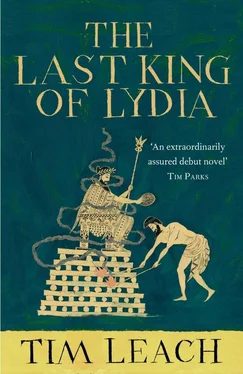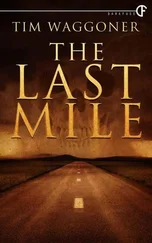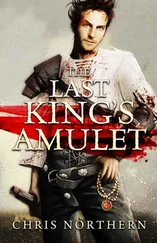Tim Leach - The Last King of Lydia
Здесь есть возможность читать онлайн «Tim Leach - The Last King of Lydia» весь текст электронной книги совершенно бесплатно (целиком полную версию без сокращений). В некоторых случаях можно слушать аудио, скачать через торрент в формате fb2 и присутствует краткое содержание. Год выпуска: 2013, ISBN: 2013, Издательство: Atlantic Books Ltd, Жанр: Исторические приключения, на английском языке. Описание произведения, (предисловие) а так же отзывы посетителей доступны на портале библиотеки ЛибКат.
- Название:The Last King of Lydia
- Автор:
- Издательство:Atlantic Books Ltd
- Жанр:
- Год:2013
- ISBN:9780857899200
- Рейтинг книги:5 / 5. Голосов: 1
-
Избранное:Добавить в избранное
- Отзывы:
-
Ваша оценка:
- 100
- 1
- 2
- 3
- 4
- 5
The Last King of Lydia: краткое содержание, описание и аннотация
Предлагаем к чтению аннотацию, описание, краткое содержание или предисловие (зависит от того, что написал сам автор книги «The Last King of Lydia»). Если вы не нашли необходимую информацию о книге — напишите в комментариях, мы постараемся отыскать её.
The Last King of Lydia — читать онлайн бесплатно полную книгу (весь текст) целиком
Ниже представлен текст книги, разбитый по страницам. Система сохранения места последней прочитанной страницы, позволяет с удобством читать онлайн бесплатно книгу «The Last King of Lydia», без необходимости каждый раз заново искать на чём Вы остановились. Поставьте закладку, и сможете в любой момент перейти на страницу, на которой закончили чтение.
Интервал:
Закладка:
He walked across the temple to where the women sat still and silent, as though they were at prayer, not waiting to be bought. He let chance decide for him. He simply walked along the row of women without looking at them, and counted down from ten. Then he stopped, turned to the woman beside him, and threw a coin into her lap.
She looked up at him, and he saw that she was neither ugly nor beautiful. A merchant’s daughter, perhaps, who had spent her life weaving and cooking, until her duty had taken her to this temple. A plain, ordinary-looking face, with calm grey eyes that looked at up him without fear. She had a body like Maia’s, he thought, then wished that he hadn’t.
He smiled at her. He offered a hand to help her up. She took it, and he led her away without a word.
3
‘I am Cyrus, king of the universe, the great king, the powerful king, king of Babylon, king of Sumer and Akkad, king of the four quarters of the world, son of Cambyses, the great king, grandson of Cyrus, the great king, descendant of Teispes, the great king, king of the city of Anshan, the perpetual seed of kingship, whose reign Bel and Nabu love. .’ Croesus stopped reading, and tried to keep the smile from his face.
‘Is something wrong?’
He turned to face his king. ‘It is a little overdone, don’t you think?’
‘People expect this kind of thing from me now.’ Cyrus paused. ‘You didn’t have to come here, you know. It is supposed to be your day of freedom.’
‘I know,’ Croesus said. ‘But I wanted to read it today. It’s my choice to make, isn’t it?’
‘Well, come on then. Don’t waste your time speaking to me. Keep reading.’
Croesus looked again at the cylinder. It was the length of three fists placed side by side, and every part of the pale clay surface was marked with the strange cuneiform script. Next to it was a wax tablet, marked with the translation that he was reading from. He had never learned the cuniform of Babylon, and even as he read it he wondered what had been lost in translation, what nuances in the original language he would never understand.
He read on. It said that Cyrus came as a liberator to the city, to free it from a tyrant king, with the blessing of the Babylonian God, Marduk. It spoke of how he would not seek to impose his own gods, but would help the Babylonians to rebuild their damaged temples, how he would reconstruct what had been destroyed in the war, to help Babylon prosper, and to worship freely.
‘There you are,’ Cyrus said, when he saw that Croesus had finished. ‘My proclamation. To leave the people alone, as your Isocrates would wish. What do you think?’
‘It is a fine piece of writing. I especially like that part about your army. “His vast army, whose number, like the waters of the river, cannot be known”.’
Cyrus rolled his eyes. ‘One of my scribes. Something of a failed poet. I like to let him add the odd bit of grand language, here and there. It keeps him from pining.’
The king signalled for a servant to take the cylinder away, but before it disappeared, Croesus took one last look at it. It was not in any way unusual, he thought. It was in the form of dozens of kingly proclamations that had come before, and thousands that would follow. Yet it was nevertheless the beginning of something, something that he could not describe because the words for it had yet to be invented. He wondered what strange event he had unwittingly been a part of, what echo down history the cylinder would sound. That was his fate, he thought. Always to be at the beginning, always to be ignorant, never to see or understand the end of things.
Once the cylinder had been taken from the room, to be entombed in the wall of the city, as Croesus had heard the Babylonians used to bury their kings of old, he dismissed his thought as foolish. It was a conqueror’s proclamation like any other, to be buried and forgotten. It meant nothing.
‘All that talk of free worship,’ Croesus said. ‘Is there something more to it than just rebuilding a few temples?’
‘Yes,’ Cyrus said. ‘I am going to do something about the Jews. There are thousands of them here.’
‘I didn’t realize there were so many in the city.’
‘Babylon captured Jerusalem some time ago. Apparently they had some trouble with the natives. Insurrections, assassinations, that sort of thing. The Babylonians grew weary of them, and exiled them all to the city where they could keep a close eye on them.’
‘You are an expert on their history?’
‘I wasn’t until recently. One of their elders requested an audience with me. He asked me — no, begged me — to allow them to worship their own god, and not to have to follow mine.’ He paused. ‘It had never occurred to me to bar them from their worship. What an impious thing that would be. And then I spoke to him a little more. He told me about their exile. We will do something about that as well.’
‘Most rulers aren’t so permissively plural in how they let their subjects worship.’
Cyrus laughed. ‘Permissively plural, is it? I like that. But who am I to keep a man from his gods? If his is a true face of God, surely I would be punished for it. If not, well, the fault lies with him, not with me, for worshipping his empty idols. Don’t you think? I am a king, not a god myself.’
‘How humble of you to admit that.’
‘Mock all you like, Croesus, mock all you like. I am in a good mood today. I shan’t punish you for it.’
‘You will send the Jews home, then?’
‘Yes. We control Jerusalem now. Let them go back there, if they wish to. They have a miserable enough time of it here; the Babylonians loathe them with an impressive passion. Maybe they will find a better home there. There is a temple they want to rebuild. Their elder made it sound very important. We will help them with that as well.’
‘Is that wise? They might rise up against you, given their own city.’
‘Perhaps, perhaps. But that is a problem for another time. I’ll trust they will remember what it was to be exiled, and act with a little humility. I have never understood why the Jews inspire such hatred. Do you?’
‘No. It is a customary hatred. Handed down from one generation to the next.’
Cyrus shook his head. ‘Hatred should never become custom. It is a poor gift to pass on to your children.’
‘You don’t believe in hatred?’
‘Oh, there are plenty of things I hate. A few people too. But I learned to hate them myself — I would not have anyone teach me. You wouldn’t expect to inherit love, would you? It’s too important to be passed down. It is the same with hate. A man who hates because he is told he should hate is a fool.’
Silence fell. Croesus stood, waiting for a command, but Cyrus said nothing, apparently without an order to give, yet disinclined to dismiss him. The king’s gaze wandered over to a map on the wall.
‘I worry about Cambyses,’ the king said.
Croesus said nothing.
‘He cries too often,’ Cyrus said after a time. ‘I worry he is too weak to be a king. I sent him to the north, to take part in a Babylonian ritual. The heir to the throne must be beaten by their priest. I thought it would do him some good. But the way he looked at me. . Was I wrong to do this, do you think?’
‘I don’t know, master.’
Cyrus shook his head. ‘There are many things that I have mastered in this life. But this is not one of them.’ He looked at his slave. ‘Will you help me to raise him? I want so much for him to be a good king. A good son.’
‘I will do my best,’ Croesus said. ‘But I am an old man. Who knows how long I will be able to help you?’
Cyrus smiled, and toyed with a piece of silk that hung next to the throne.
Читать дальшеИнтервал:
Закладка:
Похожие книги на «The Last King of Lydia»
Представляем Вашему вниманию похожие книги на «The Last King of Lydia» списком для выбора. Мы отобрали схожую по названию и смыслу литературу в надежде предоставить читателям больше вариантов отыскать новые, интересные, ещё непрочитанные произведения.
Обсуждение, отзывы о книге «The Last King of Lydia» и просто собственные мнения читателей. Оставьте ваши комментарии, напишите, что Вы думаете о произведении, его смысле или главных героях. Укажите что конкретно понравилось, а что нет, и почему Вы так считаете.












